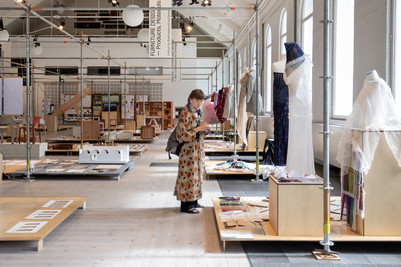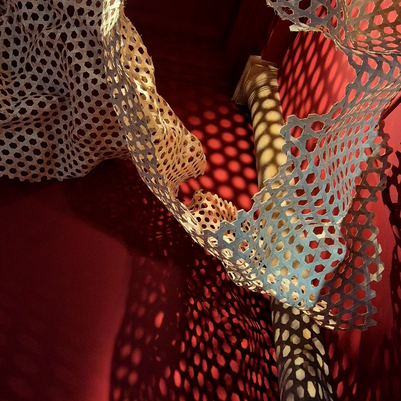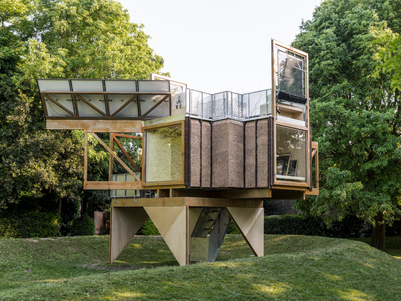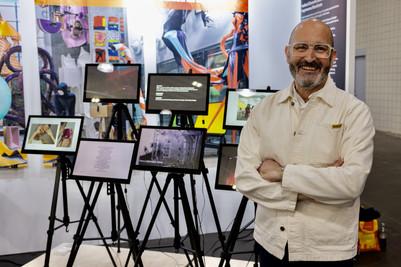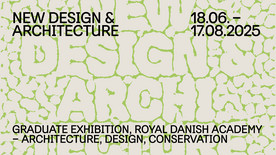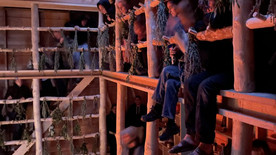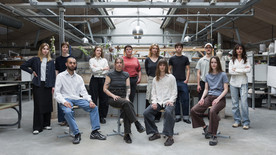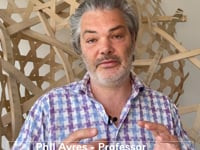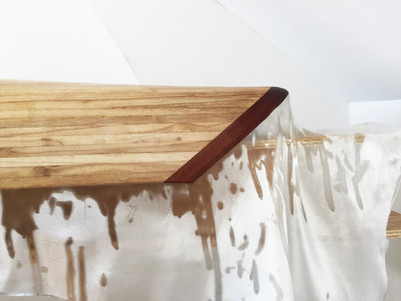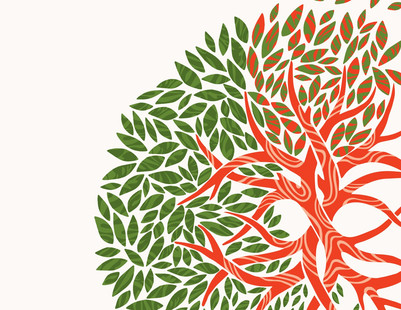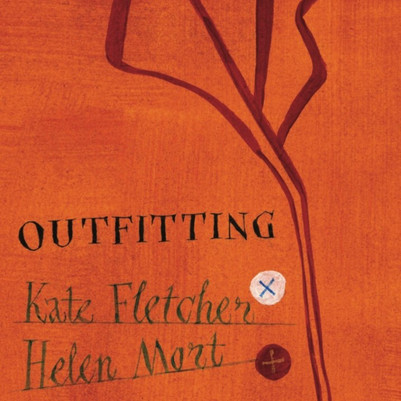

New research promises intelligent and living materials for the future
How can we build more sustainably by constructing materials from living cells with intelligent properties? A new international research project based at the Royal Danish Academy will examine how living fungi, in collaboration with bacteria, can produce sustainable materials with computational capabilities in the future. The research project has been granted by the EU Commission under the EIC Pathfinder funding instrument.
The EU Commission has just granted a co-funded 4 million EURO project for a "cutting edge" research project led by Phil Ayres, Professor of Biohybrid Architecture, at the Royal Danish Academy. The project will investigate engineered living materials (ELMs) - that is, materials composed of living cells that maintain biological activity within use-case scenarios. The project will critically investigate how such materials can contribute to the grand societal challenge of producing more sustainable materials in a resource conscious manner. It will do so by including novel citizen science approaches to the design of biomaterials. The project will also investigate the novel functionalities of these materials such as their inherent intelligent, adaptive and self-healing properties.
A growing construction sector will need materials and resources
"In the coming decades, it is projected that we will have a global shortage of key resources and materials, despite forecasts of a near doubling of material demand up to 2060. This will not only affect the construction sector, but all sectors immensely, " says Phil Ayres. "Our aim is that the results of the research can be of decisive importance in relation to creating new material streams and production methods with biological, intelligent materials for the construction industry and beyond, which can make material production more resource-saving and environmentally friendly”.
Fungi and bacteria in intelligent collaboration
The field of ELMs is emerging and still in its infancy, but it promises radical and disruptive alternatives to our current methods of material production, fitting within a broader paradigm shift towards biofabrication which promises to become the dominant mode of manufacturing in the 21st Century. The project will address an existing development gap in the field by developing a portfolio of mycelium-based ELMs composed from a co-cultivation process utilising fungi and a bacterial strain.
The researchers anticipate that adaptive growth of mycelium can be exploited to develop an autonomous bottom-up manufacturing technology, with properties such as strength, density and growth rate being locally informed by interactions with bacteria and the environment. They also aim to implement functions targeting ecological priorities such as the break-down of environmental pollutants and atmospheric carbon sequestration.
In this project, the concept of mycelium-based ELMs further includes the genetic engineering of the bacterial partner, providing a further dimension of control towards the production of ELM’s with predictable functionalities, shapes and other properties.
In the long term, this can not only completely transform our way of creating buildings and cities but holds infinite new potentials across all sectors by providing living materials that can regenerate, self-heal, and respond to environmental stimuli in a resource conscious way.
About the project
Project title: ” FUNGATERIA – enlisting synthetic fungal-bacterial consortia to produce multicellular mycelium-based ELMs with computational capability”.
Project duration: 4 years
Coordinating partner:
Royal Danish Academy / CITA / Chair for Biohybrid Architecture
Participating partners:
- Vrije Universiteit Brussel
- Ghent University
- Universiteit Utrecht
- University of Oslo
- University of the West of England
The Commission selected 39 new projects under the 2021 EIC Pathfinder call for cutting edge research projects to achieve breakthroughs in five strategic areas, with 7 projects being awarded under the specific Engineered Living Materials call. The successful projects were chosen among 403 submitted eligible pro-posals and will receive up to €145 million of EU funding.




